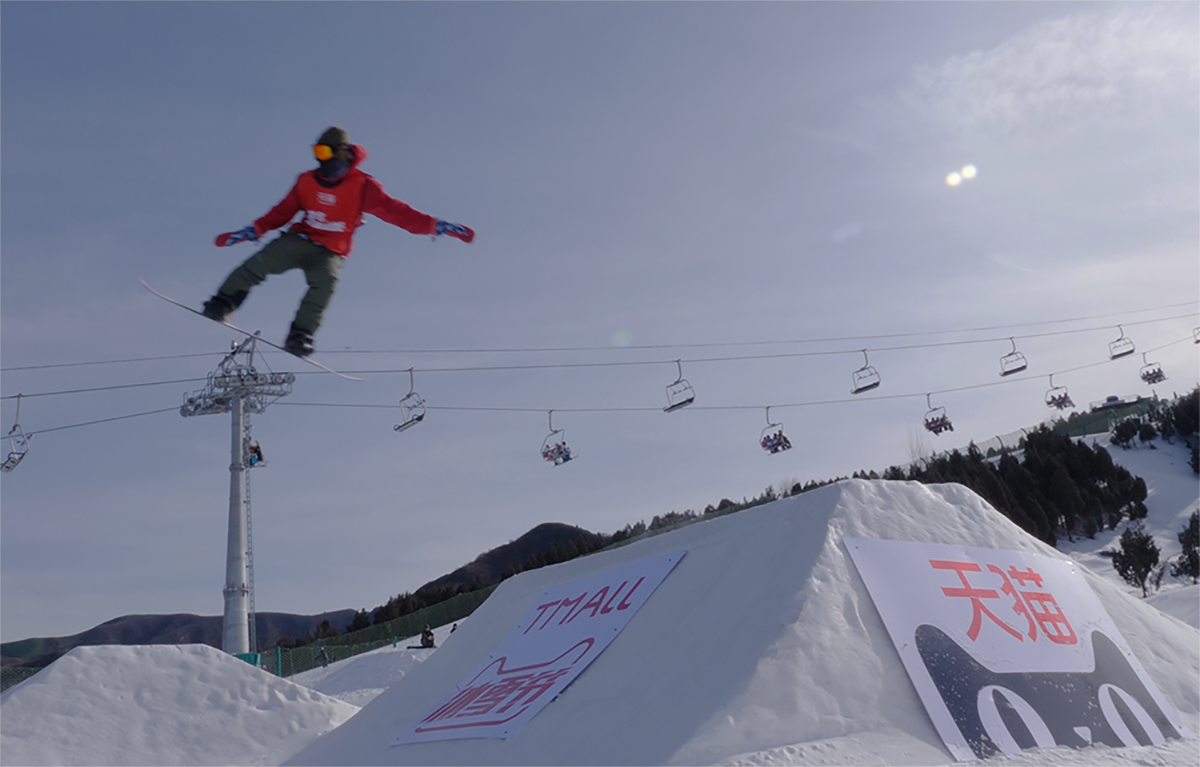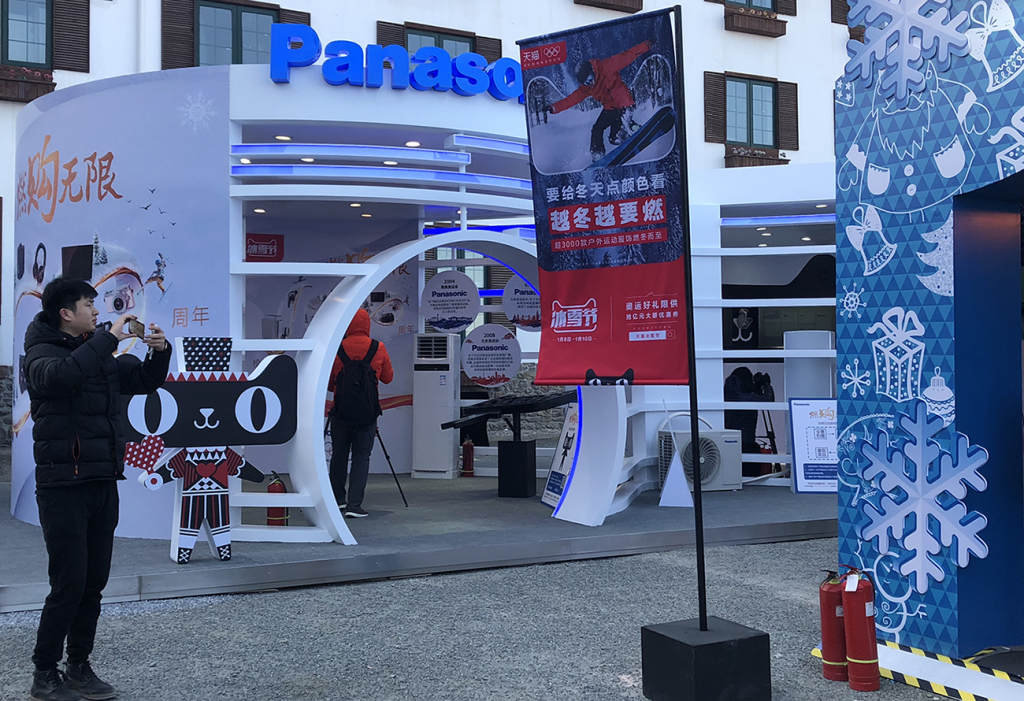
It was under five degrees Celsius in Beijing, but the excitement for the upcoming XXIII Olympic Winter Games was red-hot at the Chinese capital’s much-loved Nanshan Ski Resort last weekend, with Alibaba’s Tmall kicking off its online “Winter Festival”.
The online retail event that ran from Jan. 6 through Jan 10 aimed to drum up Olympic spirit as the world gears up for Olympic Winter Games PyeongChang 2018 next month and to get consumers amped for the Olympic Winter Games Beijing 2022 hosted by the Beijing Organizing Committee.
The five-day only sale offered shoppers promotions on thousands of winter and sport-related items, featuring those from longtime and fellow PyeongChang Olympic partners: Coca Cola, P&G and Panasonic, as well as a major Beijing 2022 partners, Yili. On the dedicated “Winter Festival” page on Tmall, shoppers took advantage of promotions from TOP Partner brands, like a 65-inch Panasonic smart television and P&G personal-care products.
The promotion also included other winter essentials, such fuzzy indoor slippers, winter jackets, wool comforters, and even soup packets for spicy hot pot, a dish often enjoyed in China during the cold months.
Watch this video to get a feel of the excitement at Tmall’sWinter Festival, a kickoff event for the upcoming Olympic Winter Games.
“The goal of the Winter Festival is to promote the Olympic Winter Games, as well as to provide opportunities for our fellow Olympic partners to showcase their products to Alibaba’s hundreds of millions of consumers,” said Leon Xie, general manager of Olympic Business Team under Alibaba Group Marketing.
He added that, as China’s leading e-commerce player with over 500 million users, Alibaba’s Tmall also hoped to kindle Chinese consumers’ interests in winter sports by offering a wide range of affordable and trendy winter-related items, as well as winter sports gear on the platform.
At the Beijing kickoff event, visitors had the rare opportunity to engage with brands at their Olympic-themed showcases via various digital and interactive activities.
For example, at the Yili booth, visitors experienced the heart-racing thrill of alpine skiing without braving the cold by standing in front a screen while strapping on a pair of VR googles. Those at the Coca-Cola booth got a taste what it’s like to be a professional skier competing in a race in a high-tech game powered by motion capture.
At the Panasonic booth, visitors tried their hands at curling, a widely popular sport in Canada that is beginning to gain traction in China.

Elsewhere, visitors to Beijing subway stations played interactive games set up by P&G. According to the brand, the games not only transported players to a white winter wonderland through digital technology, booth visitors could also learn fun trivia about the Olympic Winter Games and different kinds of winter sports.
Alibaba Group and the International Olympic Committee in January last year jointly announced a partnership through 2028. Alibaba was the first partner to make a long-term commitment to the IOC. As part of The Olympic Partners worldwide sponsorship program, Hangzhou-headquartered Alibaba is the official Cloud Services and E-Commerce Platform Services Partner for the Games.
As part of the partnership, Alibaba will provide cloud-computing infrastructure and services to help transform the Games for the digital era. On the e-commerce front, Alibaba will create a global platform for Olympic stakeholders to engage and connect with fans seeking official Olympic licensed products.
Last month, Tmall also unveiled the world’s only Beijing 2022 authorized online shop to promote the Games and to generate more buzz for all winter sports. China has already announced its ambition to involve 300 million people to take up winter sports, especially among youth.
“We are pleased to collaborate with Alibaba and Tmall. Alibaba’s analytical capability and Tmall’s leading role in e-commerce play a very important and valuable role in the planning of the Beijing Winter Olympic Games in this digital era,” said Gu Haoning, vice chair of the Beijing Organizing Committee for the 2022 Olympic Winter Games (BOCOG) market development team.




